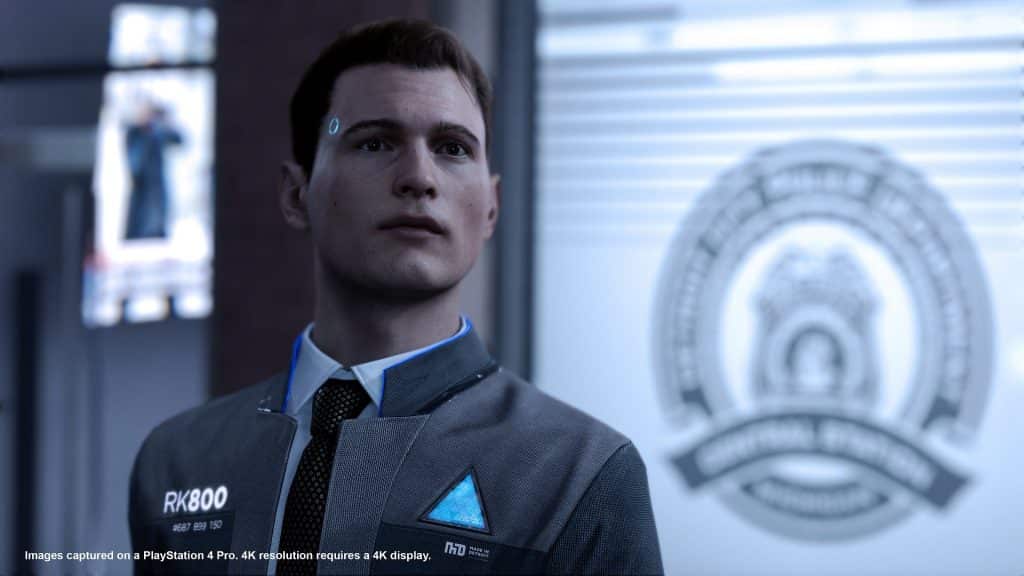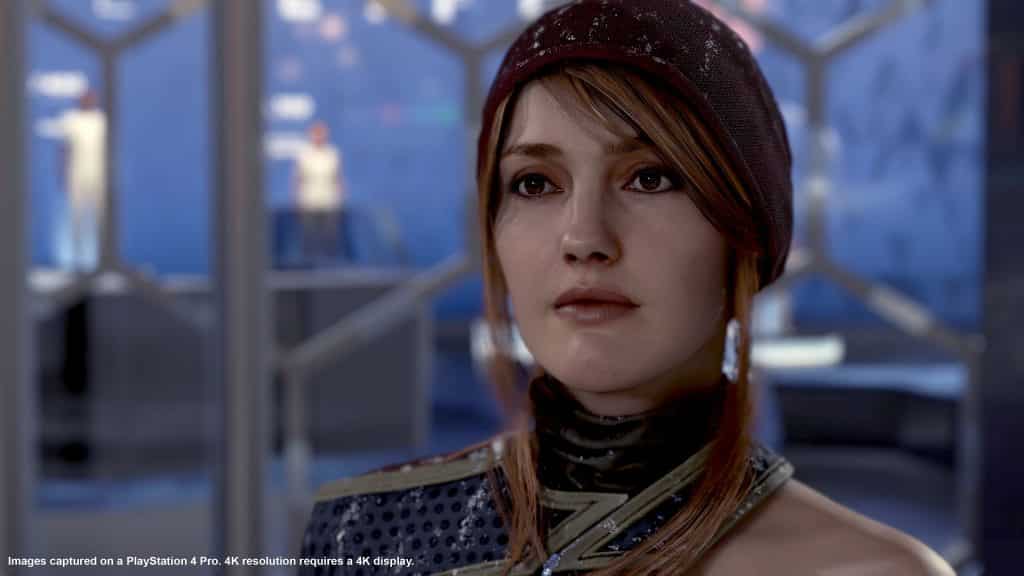Detroit: Become Human is the latest PlayStation exclusive title to be released this year and comes developed by one of PlayStation’s most well known developers, Quantic Dream.
Detroit: Become Human is a narrative based game in which the player will play as one of three android characters at a time and experience an interactive story in which the player can control the dialogue options for each character. In the game, what choice you make in certain situations for your character or even what you choose to say during the story will effect the plot as it unfolds.
Detroit: Become Human was one of my most anticipated games for 2018 and I’m sure it is also one for many PS4 owners as well. I had played many Quantic Dream games in the past and have always been impressed with the narratives they create and what they can do in gaming with these branching storylines. So going into this game this week, I had my expectations quite high for it. I had already also become quite keen after the preview I received of the game last year, which was basically the demo that was released this year that many others go to play at home. I have to say that, I do think my expectations of this being a good game were definitely satisfied in many ways, but also I did finish the game with quite a few minor gripes as well. But overall generally happy with Detroit: Become Human.

The main narrative will see you play as three different characters, these characters include Kara, Connor and Markus. All three characters are androids who were built to serve their human owners. But all androids in the world of Detroit: Become Human are becoming self-aware and are slowly running away or disobeying their owners. These androids are known as ‘deviants’ and are to be shut down and killed. The main idea that the narrative puts forward is that these self aware androids are pretty much the same as humans and by putting them down, you are essentially killing them. The game makes it clear quite quickly that the androids fear death just as much as anyone else and their position in society where they can be dismantled at any time creates a lot of fear in their community.
As a story Detroit: Become Human makes a great effort to explore quite a few themes in between each of the character journeys. Like many previous Quantic Dream games, characters in Detroit: Become Human have quite a bit of depth to each of them. Each character has their own issues to deal with and as the story goes on, it is easy to become attached to all three. With my first play through, at first I didn’t really like Connor all that much and it was not only until the end of his story that I came to like him, but that might be different for others depending on how they play him and what choices they make. I don’t want to spoil the story of Connor, but I feel that he’s probably the most interesting character of the three. He’s the only android that sees himself as an android or a machine rather than a ‘deviant’ as the others do. He’s not really self-aware and there’s major questions around him and it’s very interesting to see his story develop.

Kara and Markus are both very interesting characters to explore. Markus’ story is filled with themes of slavery, freedom and equal rights. He’s basically all about becoming equal and achieving equality for his android race and there are many allusions to many similar real world historical events. I find him to be interesting, but I felt that the historical allusions were a little too much at times. Markus’ story is very American centric and it’s very obvious where the inspirations for his character journey were drawn from. Kara’s story is filled with themes of domestic violence and abuse, she’s a female character seeking safety for herself and a young child who are running from an abusive parent.
When coming out of my first playthough, I had experienced quite a lot of big character moments. I was very impressed with the story and the ending that I got. In my first playthough I did quite well with both Kara and Markus and was satisfied with their endings. But because of the way I played Connor, I somehow messed him up and didn’t really get the best ending for the poor guy. Luckily Detroit: Become Human does have some replayability as you can go back after you’re done and find out what happens if you make different choices instead. I’m curious to see how the branching story will change when I do that. My first playthough of the game took about 8-10 hours to complete.

With Detroit: Become Human, I did have the occasional gripe with the game. Most of it was due to the use of the motion controls or touch controls on the PS4 controller that the game utilises. Quite a few times the game will prompt you to physically move the controller to the left or right. A few times for me, I was sitting there moving it and to be honest it wasn’t responsive enough. Eventually after a few goes it’s okay, but it’s annoying. Also shaking the controller or fingering the touch pad to take action in certain moments didn’t make things more fun. This makes up quite a bit of the gameplay experience and for me it always bothered me.
The voice acting in the game is exceptional. I very much enjoyed the voice performance from Valorie Curry who was the voice of Kara. She brought out all the right emotions for the character. I also thought that Bryan Dechart who voiced Connor was good at creating a persona for what was the most robotic character in the game. Other voice actors I enjoyed were Clancy Brown who voiced Hank and Lance Henriksen who voiced Carl.
The graphics in the game are probably the highest point in its favour. There aren’t many other games on the PS4 platform that can match the visuals. When looking at the narrative genre, we have other titles such as Life Is Strange from Square Enix or any of the many games from Telltale that were released in recent years, but they just don’t really match the visuals we get to see in Detroit: Become Human. The game stands out as one of the best visual experiences you can get on the platform.
Overall Detroit: Become Human offers gamers an interesting branching narrative experience, with the opportunity to experience different plot paths with each playthrough. There are three characters you will play as and each of them is well developed and has an interesting character journey to experience. The game is filled with strong themes of domestic abuse, freedom, slavery, human rights and quite a few relatable historical allusions. It certainly is a game that is likely to bring about quite a bit of discussions with your friends who might also play it too. The graphics are amongst the best the PS4 can offer and even anywhere else in gaming at the moment. There are some let downs when it comes to annoying motion controls, but it’s not that bad. The voice acting is good and each of the actors put in some great work to bring the game to life. I’m happy to recommend Detroit: Become Human as a game to get this week on your system, particularly if you are a fan of these types of narrative based video games.

Happy to discuss the game or answer any questions you may have in the comments.
You can get your copy of Detroit: Become Human from Amazon AU right here











